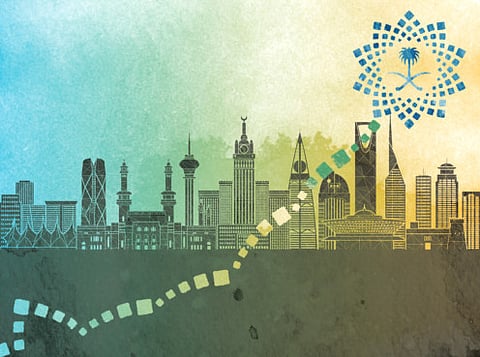Realising Saudi Arabia’s vision
From divesting part of Aramco to seeking alternatives to an oil-based economy, Prince Mohammad Bin Salman’s futuristic plan for Vision 2030 promises to be path-breaking

Coming on the heels of high anticipation and expectations from a Saudi public, the Kingdom’s Vision 2030 was announced last week with much fanfare. In a nutshell, this ambitious plan calls for a weaning off of the near-total dependence on the country’s oil resources and to move on to a more diversified economic tangent, with 2030 being the target by which oil resources will factor insignificantly in the country’s gross domestic product.
In his address to the Council of Ministers last week, King Salman Bin Abdul Aziz of Saudi Arabia said: “We plan to achieve a better future for the country and its people by utilising our country’s capabilities and potential and benefiting from its location and resources. So we directed the Council of Economic Affairs and Development to set the Kingdom’s economic and development vision to achieve and hopefully to make our country a model for the world. We express our thanks to the Council for its efforts in this regard, hoping that our sons and daughters, male and female citizens, work together to achieve this ambitious vision.”
The chief architect of the plan, Deputy Crown Prince Mohammad Bin Salman, the son of the present King and the Minister of Defence, unveiled the salient points of the plan, moulding it around three themes: A vibrant society, a thriving economy and an ambitious nation.
To finance such an ambitious venture, Prince Mohammad announced the Kingdom’s intentions to set up a $2 trillion (Dh7.35 trillion) sovereign wealth fund — by far the world’s largest wealth fund, which would be managed by a team of financial institutions, including foreign ones. The revenues generated can provide an alternative to oil revenues and will go into developing the Kingdom’s cities, as well as cater to the other aspects of the plan. And to raise the money for the fund, he added that “We plan to sell less than five per cent of Aramco. Aramco’s size is very big. It is estimated at between $2 trillion and $2.5 trillion”. The sale of less than 5 per cent of state oil giant Saudi Aramco will be the largest-ever Initial Public Offering.
The Prince was very frank in his assessment of current economic realities. That is why he has so tirelessly campaigned for a new vision that will steer Saudi Arabia away from this perilous dependency. “We have all developed an oil addiction in Saudi Arabia and this is dangerous and has hampered development in many sectors during past years,” he said. “I think by 2020, if oil stops, we can [still] survive. We need it, we need it, but I think in 2020 we can live without oil,” he explained.
The fund will also include current Saudi fiscal assets of around $600 billion, as well as returns from the sales of Aramco shares and state-owned real estate and industrial areas estimated to be worth $1 trillion, he said. “Initial data say the fund will have control over more than 10 per cent of global investment capacity. It will be by far the largest on the planet,” he said. “There will not be any investment or development in any region of the world without the Saudi sovereign wealth fund having a say. The vision is a road map of our development and economic goals,” he said. “Without a doubt, Aramco is one of the main keys of this vision and the Kingdom’s economic renaissance.”
Vision 2030 is a comprehensive agenda that also includes features such as the introduction of the ‘Green Card’ similar to that in the United States, a holding company for military industries that will be fully owned by the government at first and listed later on the Saudi stock exchange, investing more in mineral mining and boosting the Kingdom’s own military production capacity, increasing non-religious tourism and striving for major structural reforms, privatisations and a boost in overall government efficiency. The vision includes developing the country as “a logistics hub for East-West trade, becoming a financial services centre and development of more small and medium-sized enterprises”.
Saudis, in general, are cautiously optimistic of the vision as more details are set to be revealed in the near future. One person said: “Mohammad Bin Salman is young, dynamic and the son of a King. He is known to be a no-nonsense guy and will not put up with any bureaucracy or government official that may stymie his efforts. I have full confidence that as the chief architect, he will leave no stone unturned in order to make this vision a reality. It is good for the Saudi people.”
Another person was more cautious: “The Prince is carrying a heavy load with a number of portfolios, including Ministry of Defence. To oversee this vision is a massive commitment that will need his tireless attention. Does he have the time for all of this in addition to his existing obligations? Does he have the right people around him? May Allah grant him strength and perseverance.”
2030 is not so far off, and 2020 is even closer. The next few months will reveal the unfolding of the plans to make this vision a reality. It will have to be done with a dramatic shift in current bureaucracies and policies. If anyone, Mohammad Bin Salman is indeed the person to pull it through.
Tariq A. Al Maeena is a Saudi socio-political commentator. He lives in Jeddah, Saudi Arabia. You can follow him on Twitter at www.twitter.com/@talmaeena


